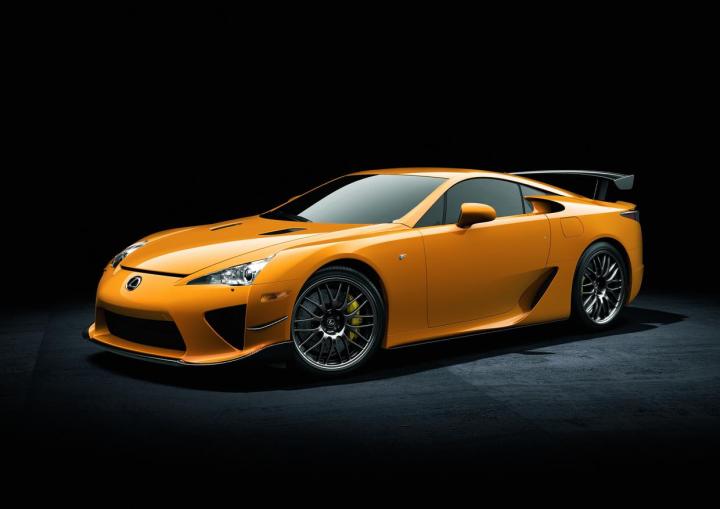
Hybrids would not exist as they do today without Toyota, and supercars would not be the same if it weren’t for BMW. So what happens when these two motoring giants collaborate?
Good things. Very good things.
As we predicted last year, the BMW-Toyota partnership will produce a new hybrid supercar, following the pattern of high-powered, boundary-pushing marvels like the McLaren P1, Ferrari LaFerrari, Porsche 918, and upcoming Acura NSX.
4WheelNews reports that the new car will in fact be the next generation Lexus LFA, but with a hybrid boost from BMWs i8 supercar.
The standard LFA isn’t exactly a slouch, with a 4.8-liter, 552-horsepower V10 propelling the car to 60 mph in 3.6 seconds. Flat out, the LFA will reach 202 mph.
The Lexus is also known for the fanatically high levels of fastidiousness used in its production. The car was developed for five years, but was almost completely scrapped and re-designed at the last minute because the engineers wanted to try a carbon fiber body instead of an aluminum one. Toyota wanted perfection and wouldn’t stop until it was achieved.
While the LFA strives for perfection in the current generation, the i8 seeks supremacy in the next. A plug-in hybrid, the i8 is powered by a twin-turbo, 231-hp three-cylinder, but with an extra 131-hp boost from an electric motor. That’s a combined 362 hp, which is good for a 0 to 60 time of 4.4 seconds and a staggering 134.5 mpge, if you factor in the all-electric driving range.
The combination should be absolutely sensational, but details on the new LFA are slim at the moment. We know that that the new car will be more powerful and economical than the previous LFA, but also likely more expensive. The previous Lexus cost $375,000, while the i8 is expected to retail for over $135,000.
Clearly, this level of performance engineering won’t come cheap, but it’s a small price to pay for automotive perfection from two generations.
Like I said, good things.


